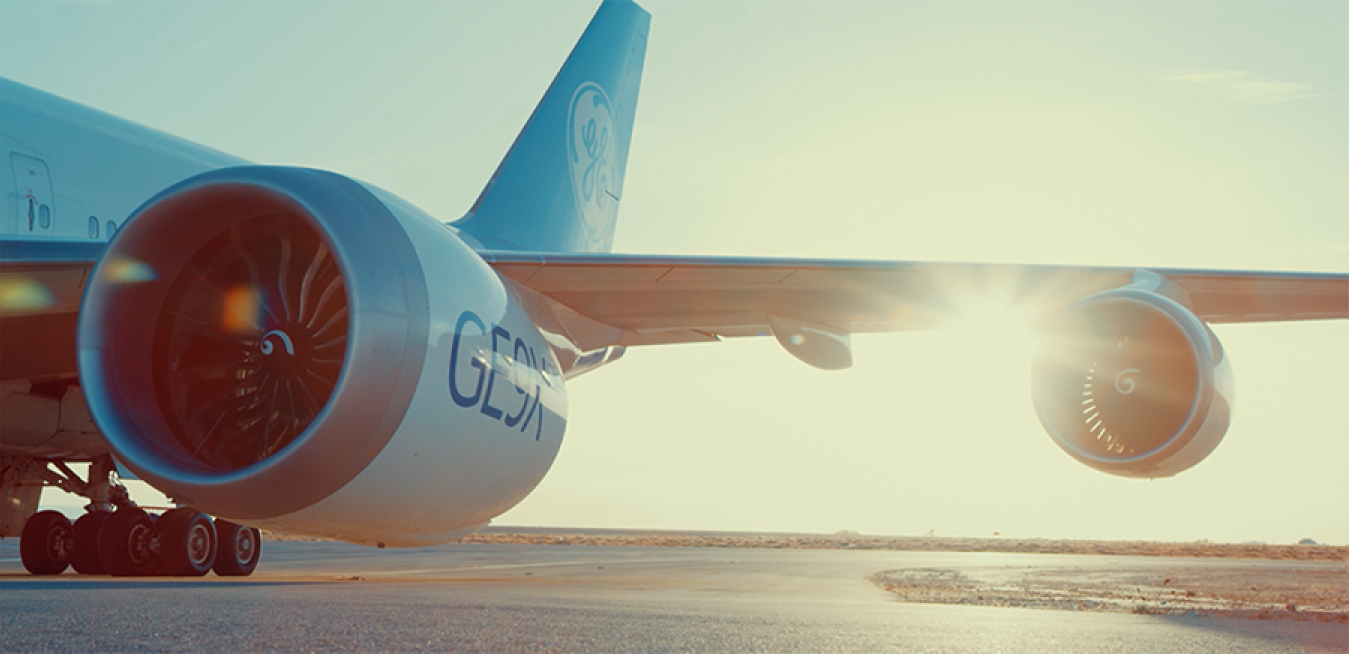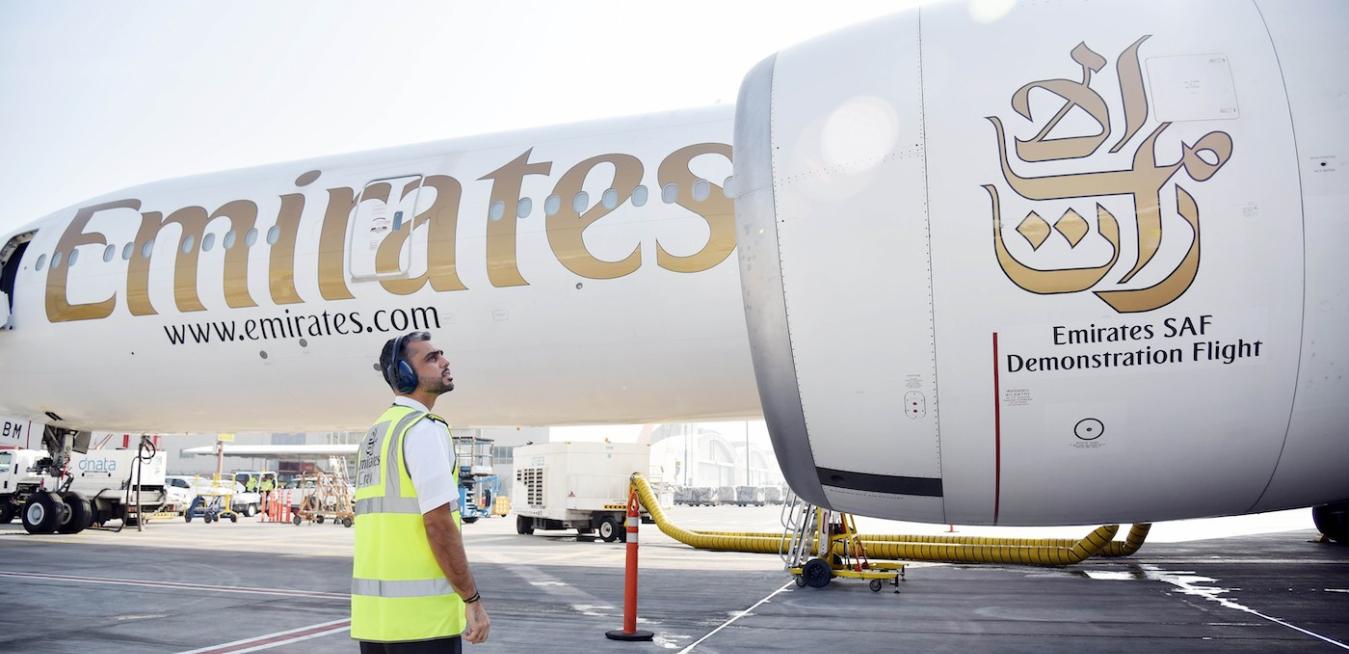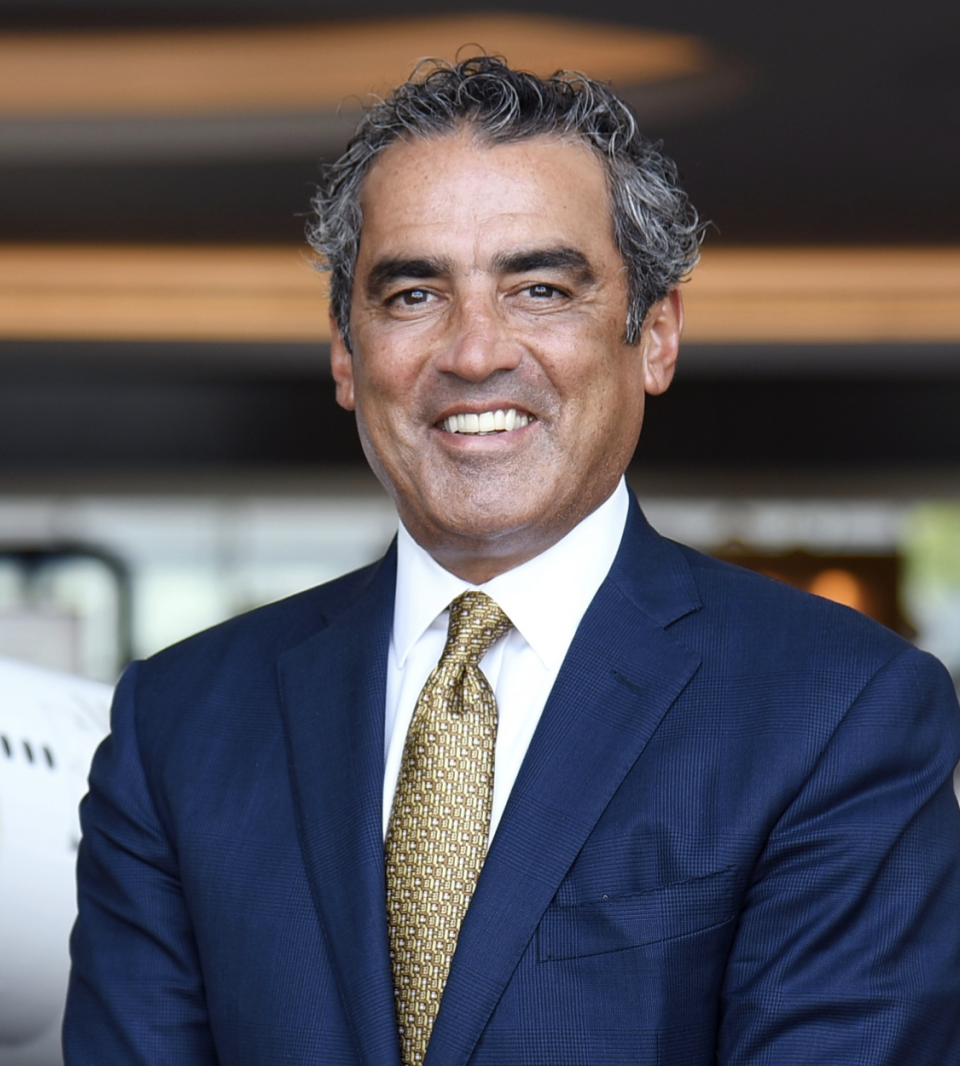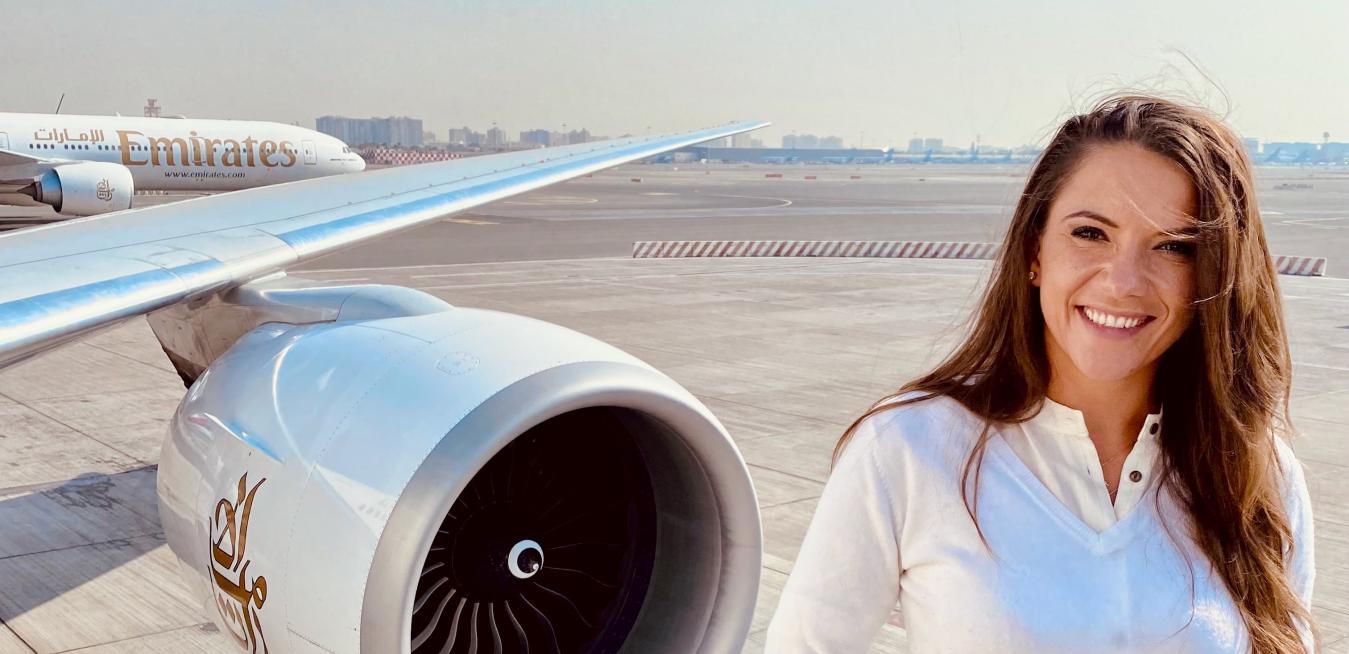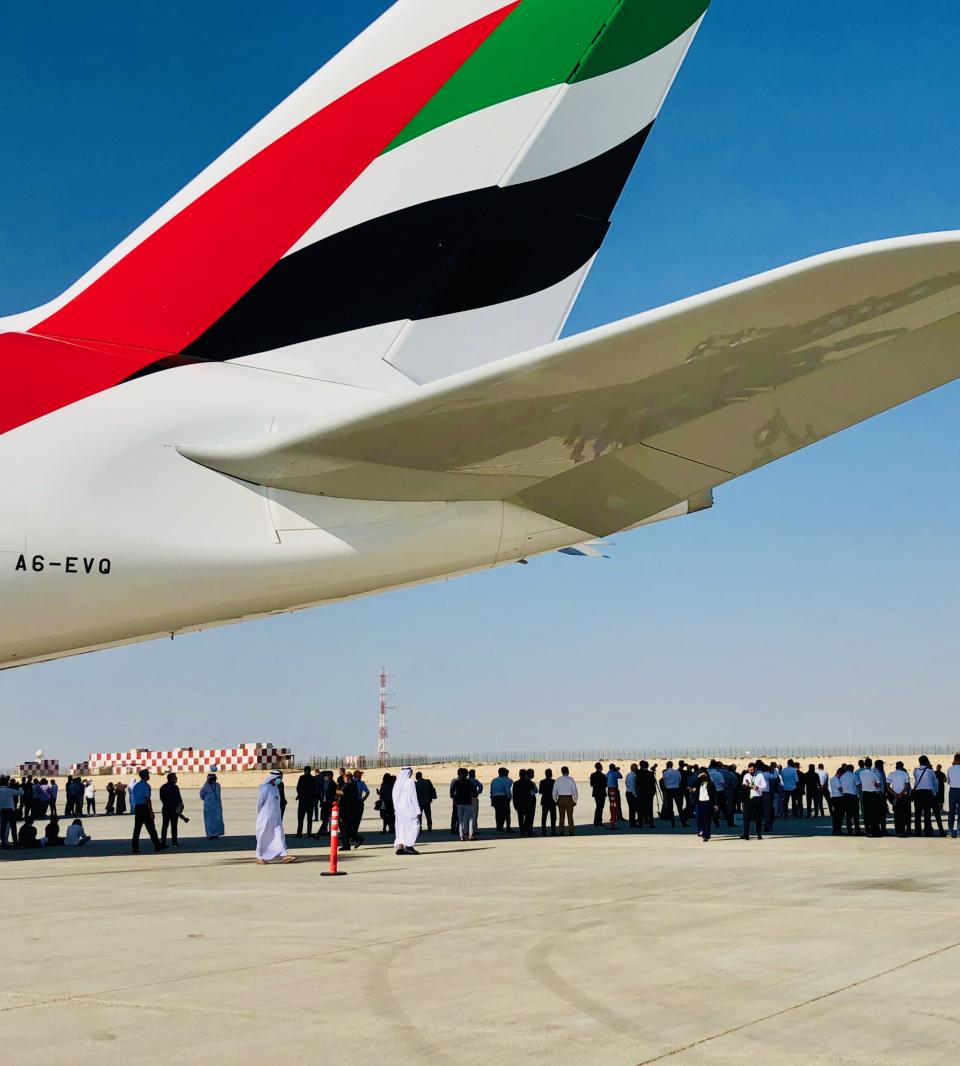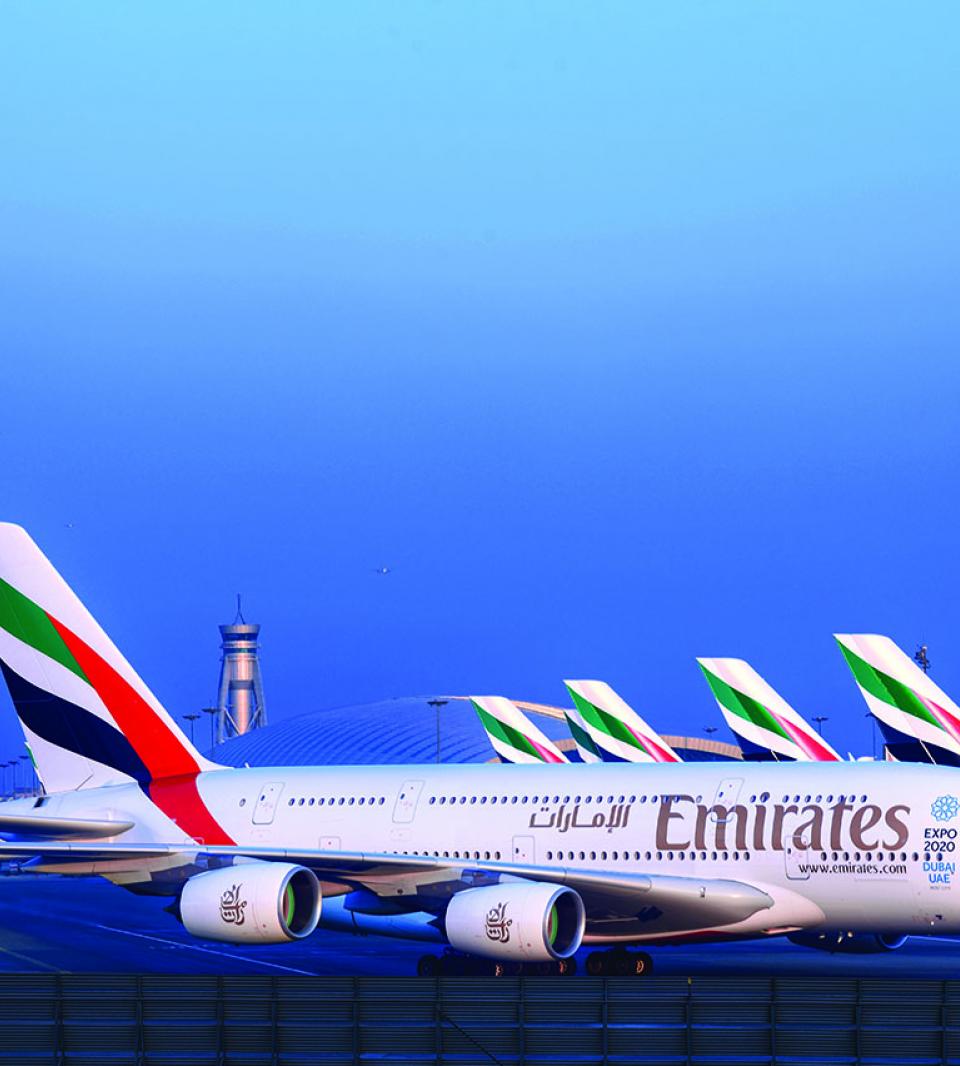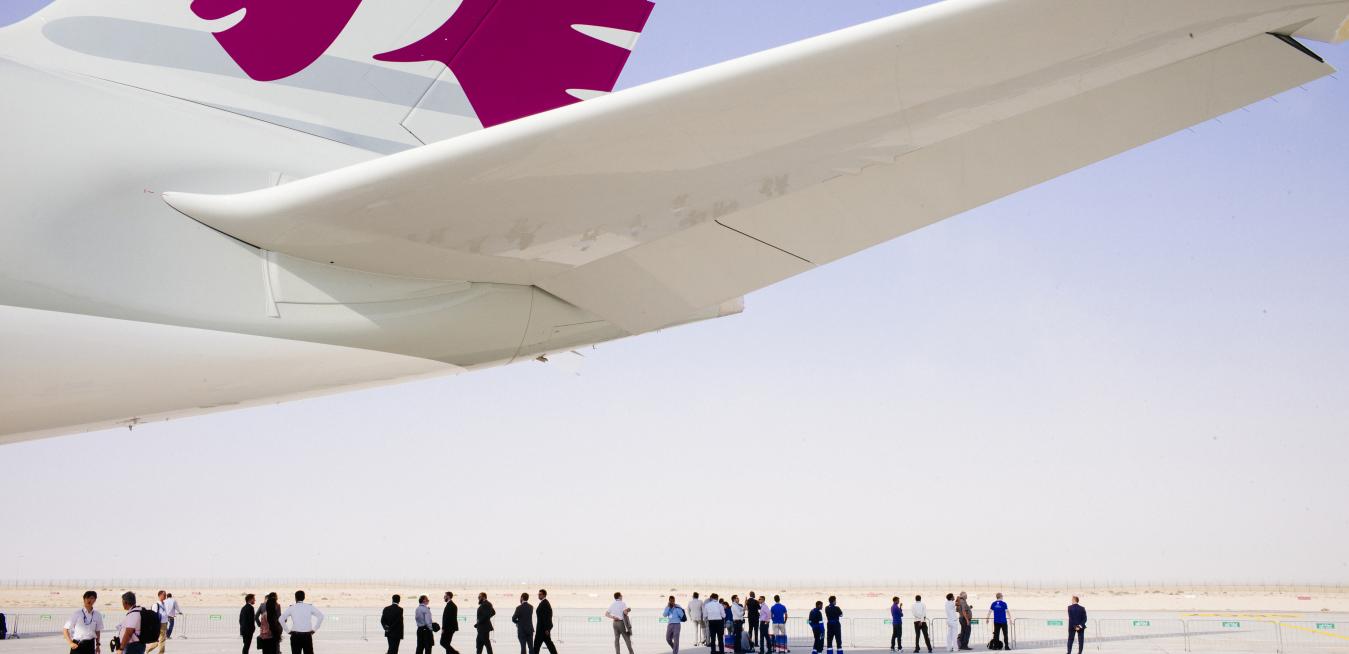The annual U.N. Climate Change Conference (COP) is famous for being a global forum bringing together leaders, policymakers, and businesses, but it also provides a stage for the host country and the wider region to showcase their efforts in accelerating the energy transition.
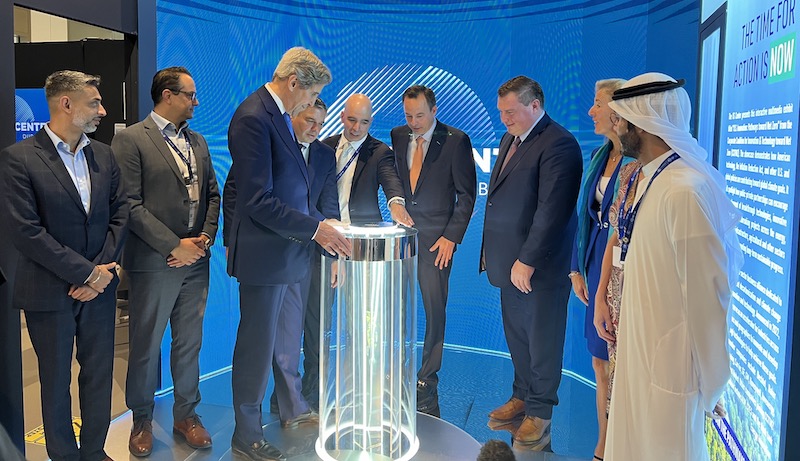
Today, Dubai-based Emirates became the first airline to operate an Airbus A380, the world’s largest passenger airliner, using 100% sustainable aviation fuel (SAF) in one of its engines.
Ohio doesn’t get many sandstorms. But an hour east of Cincinnati, on an otherwise sunny day, a dust devil is brewing. Atop a towering scaffold, a row of hoses pumps out dense clouds of powder and grit. They are instantly sucked, like a horizontal tornado, into the spinning fan blades of a jet engine a few feet away.
As the head of engineering at Emirates, one of the world’s largest airlines, Ahmed Safa is responsible for many things. These days, few topics get him engaged faster than sustainability. GE Reports caught up with Safa at Expo 2020 Dubai, where he was attending GE’s Spotlight Tomorrow summit at the U.S. pavilion. The event took place just a few days before the 2021 Dubai Airshow, where Emirates and GE Aviation brought planes, engines and other technology to the forefront.
As a young girl, Roxana Leonte remembers feeling awestruck by the white lines of the contrails that airplanes left in the sky as they soared high above her home in Romania. She marveled at everything from the physics that allowed airplanes to take flight to what it would feel like to be a passenger or even the pilot on a jumbo jet.
Data may not be what makes the world go round, but it can help airlines increase fuel efficiency and, by extension, help reduce carbon dioxide emissions when their passengers are on globe-trotting adventures.
Pilots for Emirates, the Dubai-based air carrier, have always flown straight. Now they’re going to fly “smart,” too: Emirates is adopting a GE Aviation data and analytics platform that will allow airline analysts and pilots to understand how their planes are operating with a high degree of precision, accuracy and automation.
Until recently, the maintenance department at Emirates, the Dubai-based carrier, was operating by the book. Literally. Ground crews used detailed charts and calendar-based schedules to estimate when the engines powering its massive fleet of Boeing 777 jets needed service.
Airline managers scheduled maintenance every 400 to 600 flight hours — even if nothing was wrong — to perform routine preventative work on their GE90-115B engines, incidentally the most powerful jet engines in the world.







